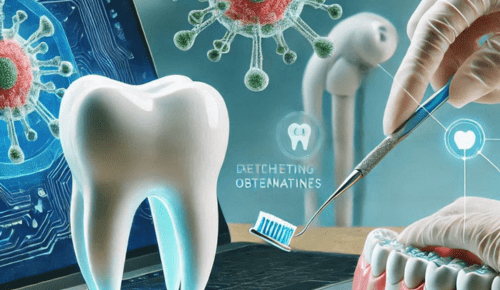Is Flossing Obsolete? Exploring High-Tech Alternatives to Traditional Dental Care

Brushing has been recommended for achieving oral hygiene for a long time. However, due to technological development, dentistry is not left behind since it has been improving the way it handles its patients. In case you are in search of alternatives to traditional oral health care techniques, a dentist in North Scottsdale AZ can help with fresh ideas. Some people have now asked if regular flossing is still useful or if more advanced technology is of greater value. Following are some of the common topics of discussion we are going the cover in this blog post:
What are water flossers and how do they function?
Water flossing has become more popular as it is considered to be as effective as conventional string flossing. These devices have a constant water flow which helps rinse between the teeth and in the areas that are most proximal to the gum. Water flossing is nonirritating to the gum lines and can clean those areas that the normal floss cannot do. It is especially advisable for users with braces, implants, or sensitive gums as they do not cause any discomfort in the course of the procedure.
How Can Air Flossing Help in Personal Care and Management of Oral Hygiene?
Air flossers are another interesting invention that uses short bursts of air mixed with microdroplets of water to clean the space between the teeth. This technology concentrates on the areas that cannot easily be reached without causing gum irritation. It is easy to use and rapid to function, thus it is ideal for those people who hesitate to floss due to time consumption. Some individuals prefer this technique because it feels less stressful compared to how some low-visioned people feel when handling small items.
Have ultrasonic toothbrushes replaced the floss?
Ultrasonic toothbrushes can be described as an advanced form of tooth brushing with high-frequency sound waves to clean the teeth. These toothbrushes may reach sites around the gum line and between teeth to some degree and provide a better clean than regular brushing. Thus, though they can be used instead of flossing, as a part of the existing modern oral hygiene program, they only contribute to general sanitation.
In what ways do dental irrigators help maintain gum health?
Dental irrigators are specialized instruments for using a water pressure pulse to wash tissue crypts in the gums. Otherwise, they are very effective in their work concerning the reduction of inflammation and the state of gums. Dental irrigators are especially recommended for those who have gingival issues or those who need a better cleanup than interdental brushes or floss can offer. Due to their characteristics of offering the capability of flushing out bacteria, they are a good substitute for ridding off oral disease.
Is the Use of Lasers in Dentistry Auroral Care of the Future?
Laser dentistry is another example of the advanced technique that is revolutionizing dental service. Sulcally it enables controlled and efficient plaque and bacteria debris elimination and stimulates the regeneration of gum tissue. It cuts on discomfort and lowers the probability of having to undertake complicated processes. Although laser technology does not floss, it addresses the culture of moving to the use of higher technologies aimed at oral hygiene.
How Is Artificial Intelligence Involved in Oral Health Care?
Smart toothbrushes as well as dental apps are incorporating AI allowing individuals to learn how to use the tools properly when brushing and flossing their teeth. These tools study trends, understand what requires more focus, and suggest improvements concerning cleanliness. AI helps make it specific and no one can deviate from the intended results of daily dental care practice.
Conclusion
Although manual flossing still holds its ground as the most efficient way of cleaning between the teeth, advanced technologies provide techniques that enhance dental practices, minimize pain, and enhance access. Devices like water flossers, air flossers, and ultrasonic toothbrushes are highly effective in enhancing oral hygiene results. As technology develops, people are allowed to select the type that they prefer and the one that addresses the dental problem they have. With such advancements embraced by the society, caring for the teeth has never been easier.



